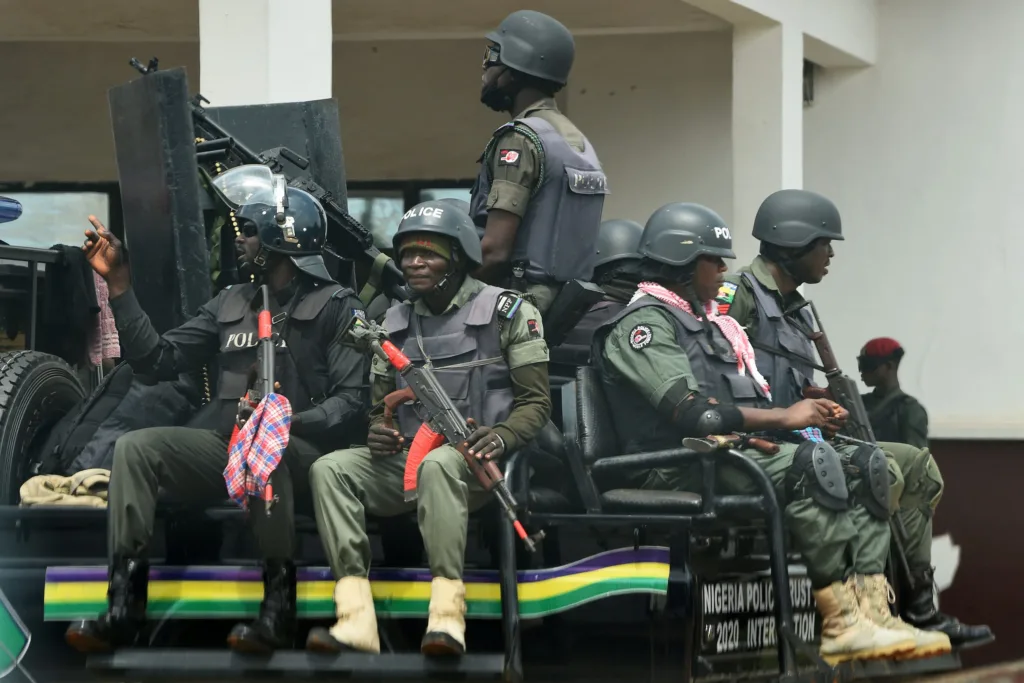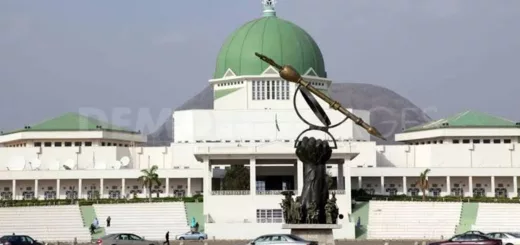List of Security Agencies in Nigeria & Functions
Let’s take a gander at the security agencies that are in Nigeria. Security agencies are government-established organisations tasked with ensuring that laws are followed and implemented. In general, they collaborate with all appropriate authorities to ensure the country’s internal security. In this post, we will look at every one of Nigeria’s key government security agencies and outline their responsibilities.

Recognizing these security organizations will allow you to contact the proper and relevant security organization should you face any threat to your security or the security of individuals in your near vicinity.
FULL LIST OF TOP SECURITY AGENCIES IN NIGERIA AND THEIR FUNCTIONS
The Following is a lengthy collection of Nigeria’s key security agencies, along with descriptions of their roles in the country.
THE NIGERIAN ARMED FORCES
The Nigerian Navy, Nigerian Army, and Nigerian Air Force make up the Nigerian Armed Forces. The Nigerian military’s three branches have diverse functions and command chains.
The Nigerian Army is the largest and most powerful of the three Nigerian armed services.
As of 2016, the Nigerian Army has a staff of roughly 200,000 people, and it is accountable for ground combat operations in Nigeria.
The Nigerian Navy is the armed forces’ maritime branch, and it is in charge of defending the country’s territorial waters and seas. The Naval Headquarters is in Abuja, and there are three operational commands with headquarters in Lagos, Calabar, and Bayelsa.
The Nigerian Air Force is one of the agencies of the Nigerian Armed Forces that is in charge of defending Nigeria’s airspace. The agency’s headquarters are in Abuja, Nigeria, and it employs approximately 10,000 people.
NATIONAL INTELLIGENCE AGENCY (NIA)
The National Intelligence Agency (NIA) is among three descendant agencies of the National Security Agency, which is now defunct (NSO). It is a governmental agency in charge of regulating the country’s foreign intelligence and counterintelligence activities.
This agency was established on June 5, 1986, as one of trio from the National Security Organization (NSO), the other two being the State Security Service (SSS) and the Defense Intelligence Agency.
The National Intelligence Agency’s (NIA) functions are similar to those of the Central Intelligence Agency (CIA) of the United States and the Secret Intelligence Service of the United Kingdom (the SIS or MI6).
Looking at the administration of NIA, a director general leads the agency, and Ahmed Rufai Abubakar presently holds this position.
THE NIGERIAN POLICE FORCE (NPF)
The Nigerian Police Force (NPF), previously recognized as the Nigerian Police, is the country’s primary law enforcement and security organization. As per Wikipedia, the agency presently employs approximately 370,000 personnel.
This law enforcement agency is one of Nigeria’s most prominent and well-known, with many of these citizens having daily interactions with its officers. The NPF is also led by an Inspector General of Police who is selected by the President (IGP). It is made up of 36 State commands divided into 12 zones, as well as seven administrative entities.
THE STATE SECURITY SERVICE (SSS)
The State Security Agency (SSS), known colloquially as the Department of State Services (DSS), is the secret service of the Nigerian presidency, reporting to the National Security Adviser. It is the Federal Republic of Nigeria’s primary domestic intelligence agency.
The State Security Service, or SSS, is a federal law enforcement organization tasked with accumulating intelligence and information across the country. It is in charge of protecting key government figures in the country, including the President, as well as the governors of the country’s 36 states.
DEFENCE INTELLIGENCE AGENCY (DIA)
Nigeria’s principal military intelligence service is the Defence Intelligence Agency. It was founded in 1986 with the express purpose of providing the Nigerian Armed Forces and the Ministry of Defense with an effective technique of gathering military intelligence.
The Chief of Defence Intelligence (CDI) is in charge of this institution, and the President of Nigeria can nominate or dismiss him at any moment. Like the SSS, much information regarding this organization, such as the number of employees and annual salary, is kept under wraps.
NIGERIA SECURITY & CIVIL DEFENCE CORPS (NSCDC)
The Nigeria Security and Civil Defence Corps (NSCDC) is a paramilitary and security organization in Nigeria. The agency is in charge of providing protection for the nation and its residents from threats, as well as any type of attack or disaster.
The Nigerian government founded the agency in May 1967. During in the Nigerian Civil War in May 1967, this organization was founded in the then-Federal Capital Territory of Lagos.
The major goal of the NSCDC is to raise awareness and safeguard civilians in the country. The agency is led by a Commandant General who is appointed by the President (CG).
NIGERIA IMMIGRATION SERVICE (NIS)
The Nigeria Immigration Service is a paramilitary force in Nigeria, as its name suggests.
The agency is in charge of controlling who enters and leaves Nigeria, as well as issuing travel documents, such as International Passport booklets, to Nigerians both inside and outside the country’s borders.
In December 1958, the agency was separated from the Nigerian Police Force. On December 1, 1963, an Act of Parliament (Cap 171, Laws of the Federation of Nigeria) established the Nigeria Immigration Service.
NATIONAL DRUG LAW ENFORCEMENT AGENCY (NDLEA)
The National Drug Law Enforcement Agency (NDLEA) is a federal law enforcement agency in the United States. The agency’s mission is to eradicate the cultivation, processing, manufacturing, selling, exporting, and trading of hard drugs. Even though it dates back to 1935, Nigeria’s highest paramilitary agency was constituted by Decree No. 48 of May 1989.
CONCLUSION
All of the abovementioned Nigerian security agencies and their varied roles are the country’s major security entities. While all these federal government entities are distinct, they are intertwined in order to ensure that people and property are appropriately protected. They likewise guarantee that acts of crime and unrest are severely curtailed and brought to a halt.
That’s the length of this write-up as we have been able to list out the security agencies in Nigeria and their respective functions.
